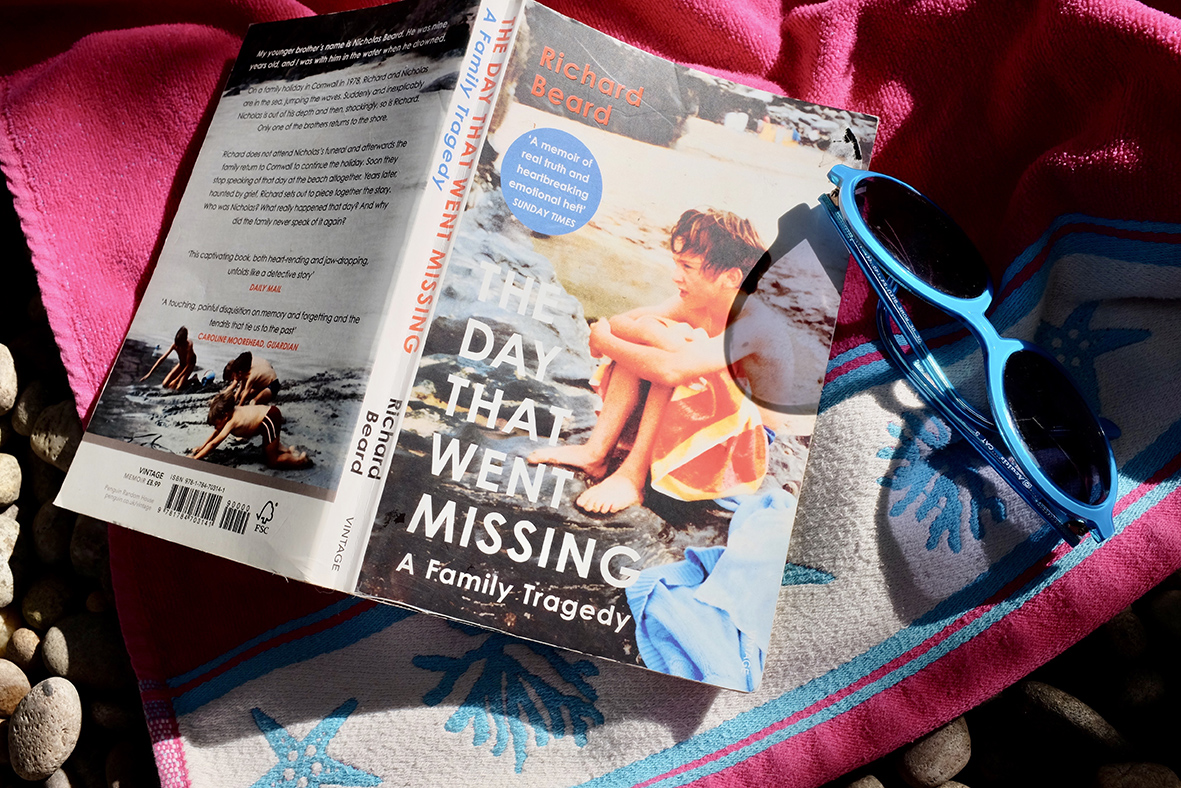19 Oct ‘The Day That Went Missing – A Family’s Story’ by Richard Beard.
 Richard Beard’s personal exploration of one tragedy in one family is also a tale of a very common survival strategy to avoid the pain of trauma. He unpicks threads in the circumstances that surrounded his brother’s death. In particular he begins to unwind linear ‘explicit’ memories of witnesses, and excavate more unpredictable ‘implicit’ memory fragments lodged in his body as “a definite physical memory.”
Richard Beard’s personal exploration of one tragedy in one family is also a tale of a very common survival strategy to avoid the pain of trauma. He unpicks threads in the circumstances that surrounded his brother’s death. In particular he begins to unwind linear ‘explicit’ memories of witnesses, and excavate more unpredictable ‘implicit’ memory fragments lodged in his body as “a definite physical memory.”
In examining the defences of his family, he recognises that “our project of denial has been a life time’s work.” In this very introspective enquiry, he shows us how these adaptive parts are gradually formed in the absence of space for the expression of grief. “…children and grandparents formulated a response to a world of unreasonable sorrow. We played Scrabble.” He spirals in towards the central happening where, “I limp and run, and the wounded noise keeps rising and has nothing to do with my leg. The noise is inarticulate pain, grief that doesn’t know how to express itself.”
I felt my heart ache for his younger self, shut down in the face of tragedy, “Snap out of it! In that definingly English phrase, pull yourselves together. We could not accept in 1978 in Swindon, the notion of legitimate emotional trauma. We didn’t respect emotion as a useful human response.”
So many who seek out grief tending bring disconnection – which may have served them well as a survival compensation, but may now separate them from self and others.
Richard Beard’s experience speaks to wider themes such as ‘boarding school trauma,’ and the culturally pervasive tendency for disconnection from “any emotional disturbance,” popularised through maintaining a ‘stiff upper lip’.
Splitting off from pain can be problematic, and for those wielding social and economic power others may pay the cost. Beard describes the mechanism by which “we were encouraged to dismiss our feelings for ourselves, and so lost the ability to feel for others.” This is a book that looks under the carpet of privilege and the cost of maintaining a social image at the expense of the people involved.



No Comments